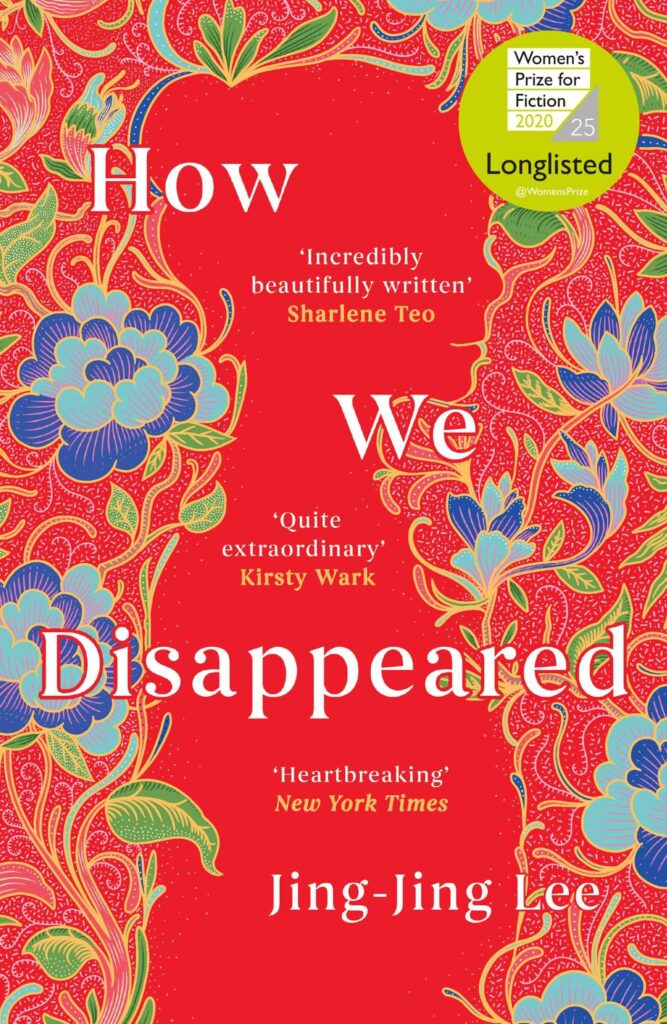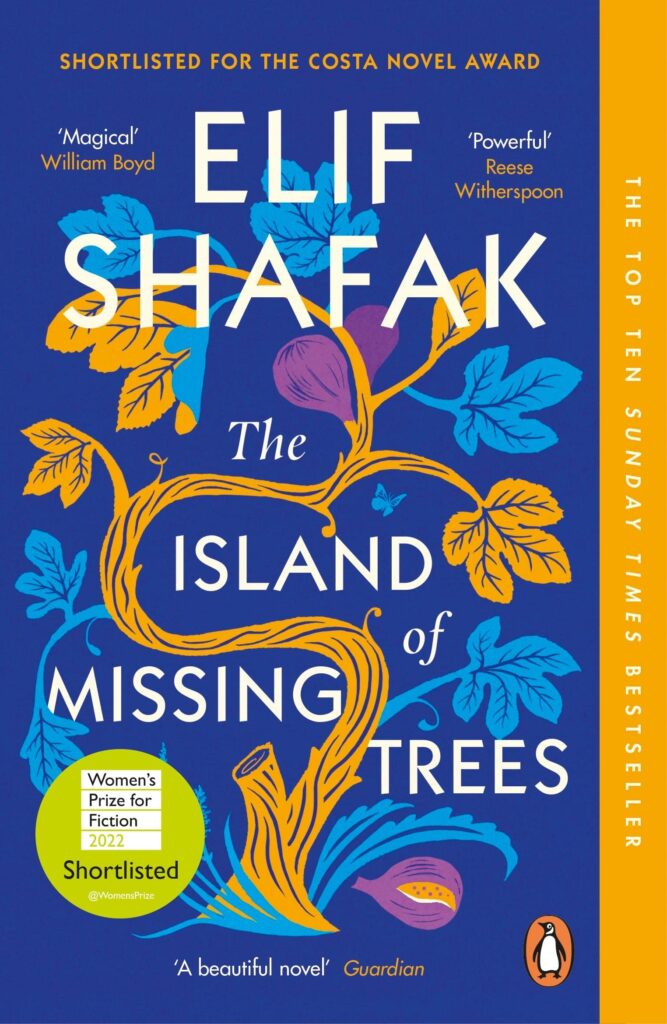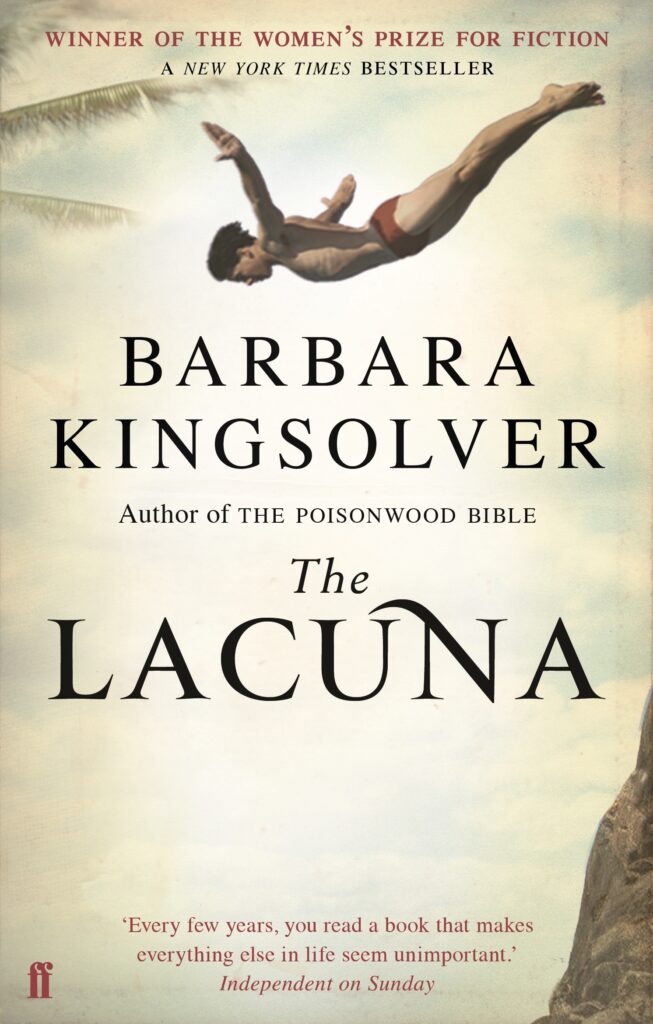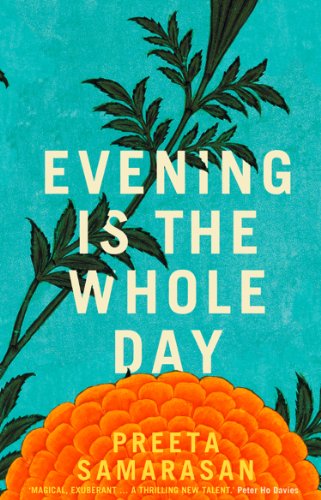Over the years, the Women’s Prize for Fiction has travelled across continents, with incredible writers hailing from every corner of the world.
Fiction is a brilliant way to understand and explore the stories of different places. The following novels from the Women’s Prize library offer insight into the history, society and culture of countries from across the world.
Travel from Nigeria to Mexico, Cyprus to Singapore, by picking up one of these fantastic reads and visiting another country without moving your feet!

Longlisted for the Women’s Prize for Fiction 2020
Travel to Singapore 🇸🇬
Jing-Jing Lee’s How We Disappeared is a historical novel set during the occupation of Singapore in the Second World War. Lee tells the story of Wang Di, a seventeen-year-old girl forced to serve as a ‘comfort woman’, offering sexual services to Japanese soldiers during the occupation of Singapore. The historical reality of ‘comfort women’ only truly came to light in the 1990s, and How We Disappeared showcases the power of modern fiction to present the untold stories of the past. Lee’s novel takes a forgotten piece of history and uses it to craft a poignant and beautifully-told tale.

Winner of the Women’s Prize for Fiction 2007
Travel to Nigeria 🇳🇬
In her masterful novel, Half of a Yellow Sun, Chimamanda Ngozi Adichie tells the story of the Biafran movement of the late 1960s. We follow a young houseboy, Ugwu, the intelligent and beautiful Olanna, and a shy Englishman, Richard. Domestic discord and complex family dynamics parallel the bubbling tensions of political conflict as Nigeria descends into civil war. Adichie addresses issues of race, class, and violence at a pivotal point in Nigerian history. Devastating and entirely gripping, Half of a Yellow Sun is a powerful read that unflinchingly portrays the horrors of warfare.

Shortlisted for the Women’s Prize for Fiction 2022
Travel to Cyprus 🇨🇾
Elif Shafak’s 13th novel, The Island of Missing Trees shifts between modern London and 1970s Cyprus, as it tells the tale of love and loss caused by the violence between Turkish and Greek Cypriots. The island is central to the story and its history, politics and ecology are interwoven, with parts of the novel narrated by an anthropomorphised fig tree which serves as a witness to the stories of Cyprus. The book explores the impact of the missing after conflict and the echoes of violence that last through generations of families. Shafak’s novel is enchanting, honest, and richly detailed, illuminating the natural beauty of Cyprus even in a time of conflict.

Longlisted for the Women’s Prize for Fiction 2019
Travel to America 🇺🇸
In The Pisces, Melissa Broder transports her readers to sunny Los Angeles. Having just broken up with her boyfriend, Lucy travels from Phoenix to LA, where she dog-sits in her sister’s beautiful beach-side house. Lucy’s life of lovesickness is thrown into further disarray when she falls for a swimmer she meets by the sea, sparking a relationship that proves to be more complicated than expected. The Pisces is a story of love and lust; Broder’s vivid writing and irreverent humour makes for a truly enjoyable read.

Winner of the Women’s Prize for Fiction 2010
Travel to Mexico 🇲🇽
In The Lacuna, Barbara Kingsolver places her protagonist, Harrison William Shepherd, at the heart of a decisive period in history. In the 1930s in Mexico City as the novel covers vast historical and geographical ground, addressing the Mexican revolution, the Great Depression and the Second World War through the eyes of an individual. Epic in scale, but with characters that resonate, The Lacuna transports emotionally and geographically. As Harrison grapples with his identity, torn between Mexico and America, Kingsolver provides the reader with a clear sense of time and place, expertly tying culture, food, geography and politics into the narrative.

Longlisted for the Women’s Prize for Fiction 2009
Travel to Malaysia 🇲🇾
Preeta Samarasan’s debut novel Evening is the Whole Day tells the story of the Rajasekharans, a wealthy Indian family in 1980s Malaysia. As we delve deeper into the lives of the family members, hidden abuses and racial prejudices are uncovered, while the death of the family matriarch leads to a vicious cycle of blame and deceit. The novel places family dynamics under a microscope and situates an intricate plot and multi-layered characters within a complex social framework. Samarasan considers Malaysian politics, history and hierarchies, all the while delighting with lyrical language and well-placed wit.
Do you like to travel by book? Have you ever been inspired to visit a destination purely from reading about it in a novel? Join us over on our social channels to let us know!








